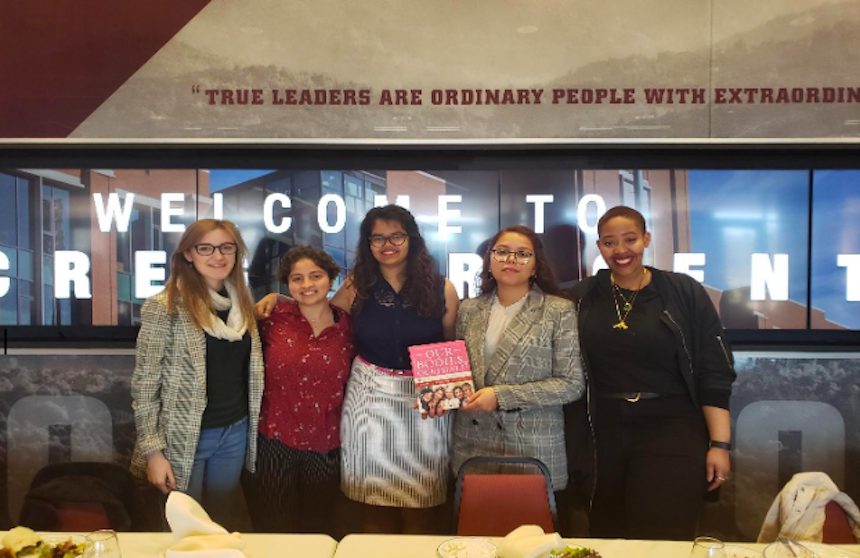Written by Emily Leclerc
On Tuesday, March 12, Roanoke College hosted a luncheon and forum about women’s sexuality around the globe. “Our Bodies, Ourselves” was organized by the Office of Multicultural Affairs and the Office of International Education. This luncheon was hosted in recognition of International Women’s Day (March 8). Hosted by Dr. Pamela Serota Cote, Director of International Education, the luncheon featured a panel of female international students who discussed their countries’ cultural stances on women’s sexuality. The panelists were Grace Boyle, Alondra Alba, Snigdha Somani, Razan Hamed and Vanessa Mutesi.
Mutesi was the panel’s first speaker. She discussed her home country of Rwanda’s views on female sexuality. She told her audience a humorous anecdote about how she was cautioned against any contact with boys during her childhood and how after her first kiss she returned home in tears convinced that she was pregnant. She then discussed the more conservative social expectations that Rwanda and Africa have for women. She did note the effectiveness of Rwanda’s system of family planning, which has drastically reduced teen pregnancies in the nation.
“Rwanda is a very conservative country. Africa in general is very conservative. So, when it comes to sex… who is sex? What is she?… Women’s sexuality in itself is nonexistent,” said Mutesi.
Next to speak was Grace Boyle. Boyle, a native of Northern Ireland, discussed the taboos surrounding sex. Women’s sexuality is not an open topic in this Catholic country. Boyle also discussed her activism in her homeland as she has been lobbying her government as a student delegate to “Repeal the 8th”, or to make abortion legal in the country.
Snigdha Somani, a freshman from India, spoke next. She discussed the extreme secrecy surrounding female sexuality in India. She spoke about how it was illegal for doctors to reveal the sex of a child before birth as it could lead to the abortion of unborn daughters. Abortion is also illegal in India. She told her listeners about how pharmacists would conceal birth control in several plastic bags in order to protect the woman from discrimination and harassment.
“Women’s sexuality is kept hushed and is almost never talked about,” says Somani.
Alondra Alba discussed sexism on both sides of the southern U.S. border. She discussed the difficulties of getting a sexual education in the “abstinence only” state of Texas. She also talked about how her family’s Catholic faith also limited her sexual knowledge.
The last speaker was Razan Hamed, a sophomore from Palestine. Hamed discussed the patriarchal social structure of Palestine. She talked about how sex was a complete secret. She had no one to educate her. She also talked about the complete dominance that a husband has over his wife and how a married man can force his wife to have sex at his command.
The panel ended on a hopeful note as the panelists recounted stories of progress and how they hoped that soon women would be on the same societal level as men.




